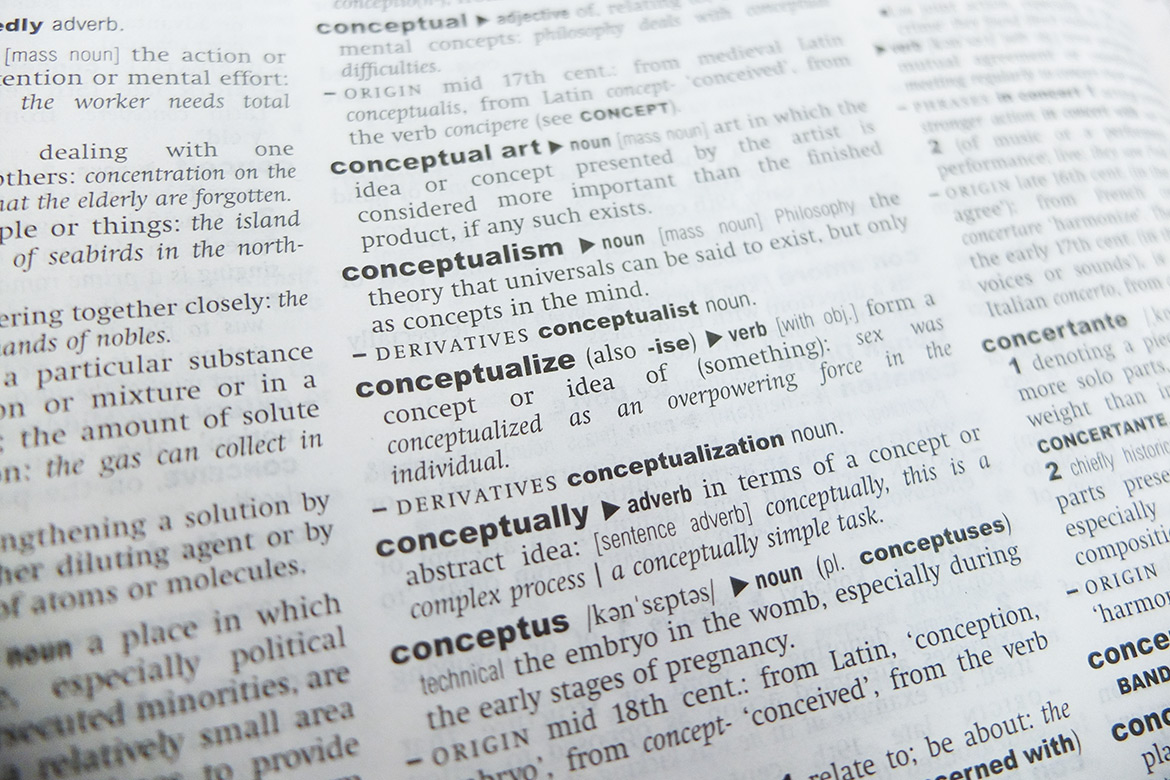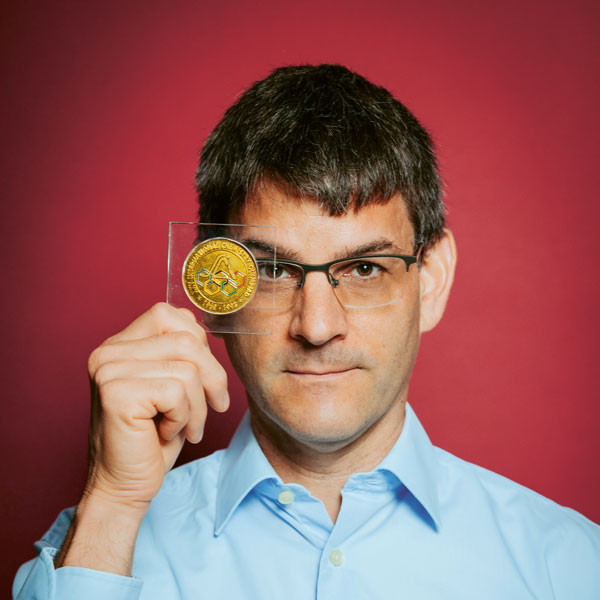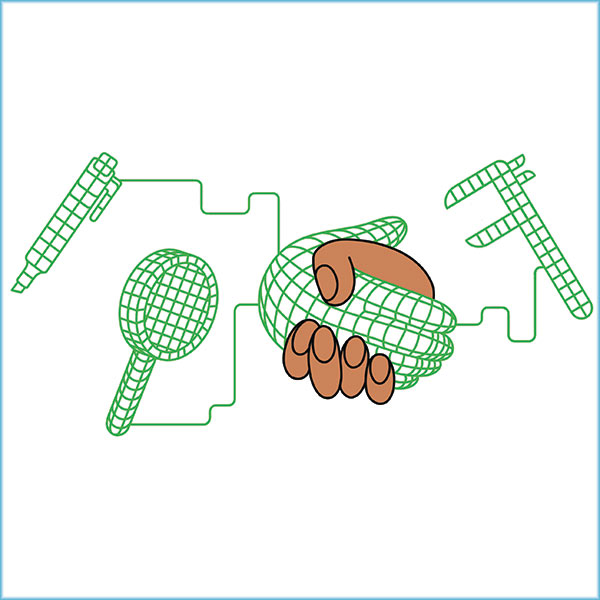ANTI-SCIENCE
“The college system in the USA needed a recalibration, but this is an overshoot”.
Science and scholarship are under fire in the USA. Claudia Brühwiler, a political theorist focusing on US conservatism at the University of St. Gallen, challenges us to see the reasons behind the current crisis.

Claudia Brühwiler believes that diversity is essential at universities – and that also means ideological diversity. | Photo: Ladina Bischof
Claudia Brühwiler, from dismantling federal agencies and cutting research funding to attacks on individual institutions like Columbia University, anti-scientism in the US has been rampant recently. You also covered this issue in your podcast, ‘Grüezi Amerika’. What do you make of all this?
It’s almost like a fever dream of the conservative movement.
What does conservatism have to do with anti-scientism?
In the US, there are different attitudes towards scientific progress and its role in society. On the one hand, US liberalism is more geared towards a technocratic understanding of society, with the idea that the best government is ruled by expertise. On the other hand, since the early 20th century, conservatives have been resistant to some scientific findings.
A commentator in demand
Claudia Franziska Brühwiler (43), a professor of American political thought and culture at the University of St. Gallen, started the podcast ‘Grüezi Amerika’ soon after the latest US presidential elections. She has a Ph.D. in political science and a ‘Habilitation’ post-doctoral qualification in American political science and has conducted research at several American universities. She thus has an in-depth knowledge of the US political landscape. She teaches US politics, history and culture.
For example?
It all dates back to the famous Scopes Trial in 1925, when a science teacher tried to challenge the Tennessee law that prohibited the teaching of evolution in schools. He lost, but this led to the political awakening of people in the so-called Bible Belt in the southern United States. The conservative movement that solidified after World War II sees more value in tradition and faith than in scientism. This is mirrored in their resistance towards teaching evolution theory at school or in the relatively large number of students attending faith-based schools. It has also led conservatives to perceive elite higher education and research institutions as opponents of the USA.
What do they believe is wrong with those institutions?
Conservative authors criticise the composition of faculties, primarily in social sciences and the humanities. They say that academia in the US is not ideologically diverse. It’s true that until the late 1990s, surveys showed that the number of professors who called themselves liberal or very liberal was below 50 percent. In a recent poll from Harvard University, however, this figure exceeded 75 percent, with not even three percent considering themselves conservative. This causes segregation of themes and people. I know that in my field, political theory, I’m less likely to publish about conservative topics in prestigious journals. And I have a friend who has been bullied out of his faculty because he was the last conservative there, albeit a very moderate one. People with a more conservative outlook would then flock to universities like the Christian Hillsdale College or the evangelical Liberty University.
So the conservatives’ anti-scientism grew as they felt excluded?
I think diversity in all aspects is important, including ideological diversity, which should also be mirrored in universities. These phenomena are not entirely new or different from what sometimes happens in Europe, but the situation is more explosive in the US. The reason is that it concerns institutions with a more elevated status and that are considered an avenue to power, like Harvard and Yale, Princeton and Columbia, etc. Over the last few years, two more factors have contributed to the animosity against academia: Freedom of speech and the policies of Diversity, Equality and Inclusion known as DEI.
Why?
In recent decades, elite universities in particular have been restricting opportunities to express and debate conservative ideas. Faculty and administrations want students to feel safe physically and psychologically, also towards certain ideas. The censorship of speakers on campus was also driven by students who didn’t want to feel uncomfortable. This was the case with Linda Thomas-Greenfield, the US Ambassador to the United Nations, who vetoed three UN resolutions calling for a ceasefire between Israel and Hamas and was disinvited many times.
And what about DEI policies?
I believe we owe it to people to level the playing field. Some protective initiatives are essential, such as those preventing suicide or protecting people who are disabled or neurodiverse. Yet many policies went beyond that. For example, the University of Virginia appointed six DEI staffers per 100 faculty members with an investment of 20 million dollars. This was either a bad investment or an ideological one – now they are scaling it down drastically.
Do you approve of the current policies of the Trump administration, then?
No, no, no! My role as an academic is to understand and explain phenomena because it’s the only way to find solutions. And I believe that the college system in the USA needed a recalibration, but this is an overshoot. A lot of conservative intellectuals and academics are also concerned with the scale of the onslaught. They didn’t expect, for example, an attack on the natural sciences and on medical research.
And these top-down federal decisions affect academic freedom.
I agree. Before this presidency, we had less freedom of speech, but we arrived there by consensus among the academic community. It wasn’t enforced by such brute measures, and it was possible to criticise it openly. This is the biggest irony of the government’s action: In the name of freedom of speech, it has been cutting down freedom of speech, freedom of ideas and freedom of research, using even worse measures than the ones on the other side that it’s been criticising.
What’s the current impact of these policies in the US?
They are disruptive and counterproductive. Junior researchers, especially in the natural sciences and medicine, depend on federal funding. A lot of projects are on hold, because they may refer to keywords that were previously en vogue but aren’t anymore. Since many funding agreements have been signed but aren’t being respected, the government is currently the most unreliable partner you can imagine. And high-profile scientists are leaving the US system or planning to leave. US dominance in research is in jeopardy. We are talking about a big chunk of the USA’s soft power, its ability to set the research agenda.
Does the current situation impact your work as well?
I don’t have any projects with colleagues from the USA. I’m only affected indirectly, because I comment a lot on US politics. I am very openly saying that I consider this onslaught against science terrible and illegal, but I also understand where it is coming from, as there is a long history behind it. Yet, as I’m saying it, people think I am condoning it. I’m not. As for my colleagues, they are staying put. If they don’t depend on federal money, then they’re just working, observing, and commenting on what happens. The problem comes when you need federal money.
Four US professors whom I contacted refused to give an interview on the topic of anti-scientism in the US. Some commentators say that, historically, scientists don’t oppose new regimes. Do you think they should be more vocal?
I think a lot of them are still waiting because it’s known that the Trump administration has this tendency to be brutal and bold initially, and then there is the possibility of finding middle ground. And people are not entirely silent. I do see a lot of movements and commentaries, also by academic conservatives. As for the institutions, I think a lot of them consider it more prudent to see what they can do to adapt.
In your podcast, ‘Grüezi Amerika’, you draw parallels between the democracies in the US and Switzerland. Is this kind of crisis coming here as well?
I don’t think so, because there’s no such rift between Swiss citizens and their universities. In our society, there’s less distrust and animosity towards academia, and the Swiss show a sense of ownership and pride towards their federal institutions and universities.




